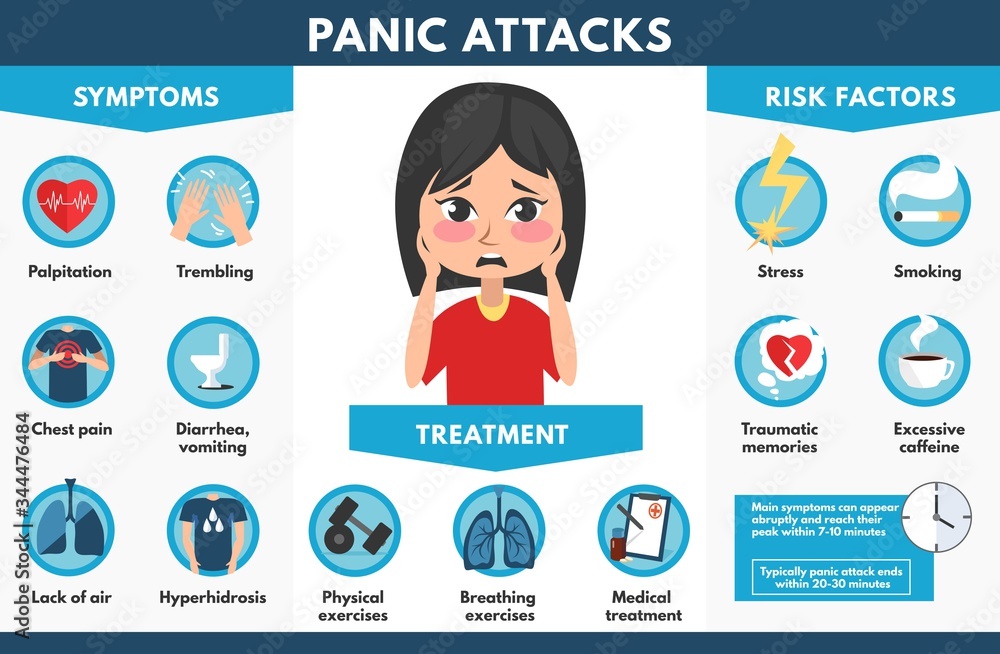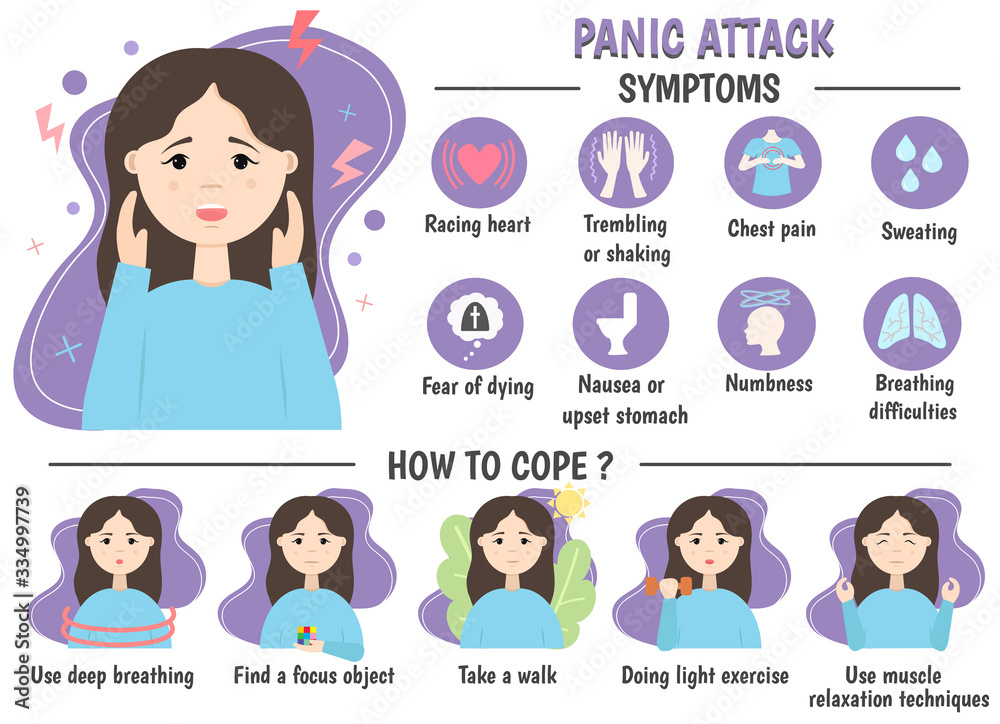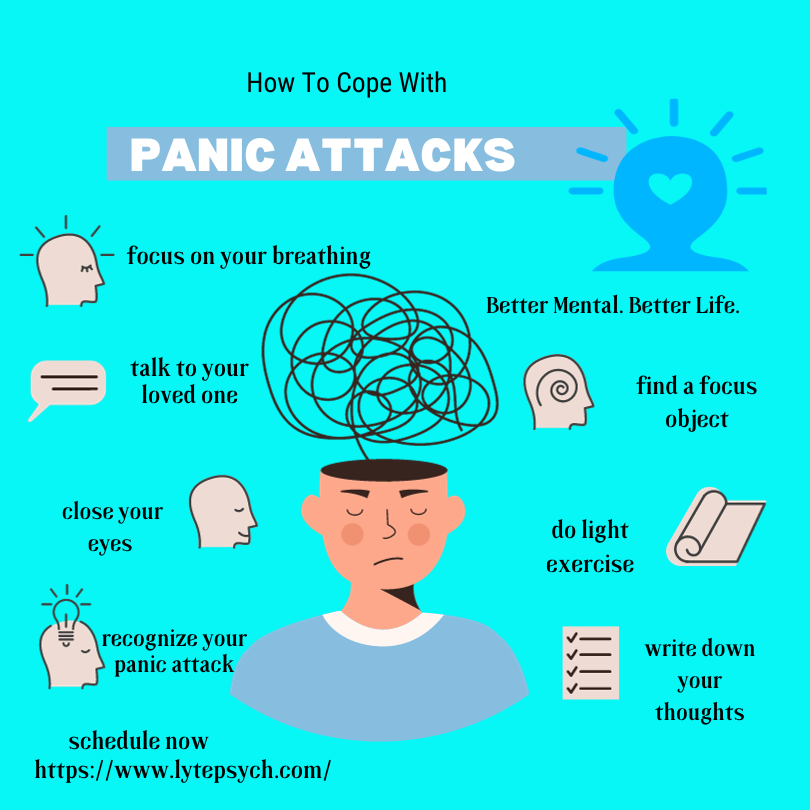Uncover the hidden causes of panic attacks and discover the surprising triggers that may be affecting your mental health.
Table of Contents
- Introduction: What Are Panic Attacks?
- Understanding Anxiety Disorders
- Signals of Stress
- The Triggers of Panic Attacks
- How Does the Body React?
- Cool Ways to Calm Down
- What to Do When Panic Strikes
- Getting Help and Support
- Remember: It’s Not Your Fault
- Conclusion: Overcoming Panic Attacks
- Frequently Asked Questions (FAQs)
Introduction: What Are Panic Attacks?
Have you ever felt extremely scared or worried for no apparent reason? Sometimes, our bodies react to our feelings in unexpected ways, and one common reaction is called a panic attack. Understanding what panic attacks are is crucial for taking care of our mental health and learning how to manage them.
When someone experiences a panic attack, they may feel intense fear, as if something terrible is going to happen. These feelings can be overwhelming and scary, but it’s essential to know that panic attacks are a real thing and not something to be embarrassed about.
Our thoughts and emotions can play a big part in triggering these attacks, but there are ways to help cope with them. By learning more about panic attacks and how to deal with them, we can take control of our mental well-being and feel more confident in facing these challenges.
Understanding Anxiety Disorders
Anxiety disorders are conditions that cause individuals to feel intense worry or fear in different situations. These feelings can be overwhelming and difficult to control, leading to physical symptoms like a racing heart, sweating, and trembling.
What Are Anxiety Disorders?
Anxiety disorders are serious medical conditions that can impact how we feel and behave on a daily basis. They are a common reason why people experience panic attacks, which are sudden and intense feelings of fear or discomfort.
Signals of Stress
Stress is like a warning sign from our bodies that something is making us feel uneasy or worried. When we are stressed, it can sometimes lead to feelings of panic, which can be really scary. Learning how to manage stress is super important for our mental health.

Image courtesy of stock.adobe.com via Google Images
The Triggers of Panic Attacks
When it comes to panic attacks, there are certain situations and feelings that can act as triggers, causing someone to experience intense fear and anxiety. Understanding these triggers is important in learning how to manage and prevent panic attacks.
Sudden Fear
One common trigger for panic attacks is sudden fear. This can happen when someone is faced with a situation that they find extremely frightening or overwhelming. The feeling of fear can be so intense that it leads to a panic attack, causing symptoms like racing heart, shortness of breath, and dizziness.
Memories and Places
Another trigger for panic attacks can be memories of past traumatic events or being in certain places that remind someone of a frightening experience. These memories can bring back intense feelings of fear and anxiety, which may escalate into a panic attack.
It’s important to recognize these triggers and develop coping strategies to help manage them. By understanding what can initiate a panic attack, individuals can take proactive steps to reduce the chances of experiencing one.
How Does the Body React?
During a panic attack, our bodies react in different ways. It’s important to understand these physical reactions so we can learn to manage them better.

Image courtesy of stock.adobe.com via Google Images
Physical Reactions
When a panic attack starts, our heart may start beating faster than usual. It might feel like it’s pounding in our chest, making us feel scared and shaky. Our breathing can also become quick and shallow, making it hard to catch our breath. Some people might start sweating a lot, feeling dizzy, or even have a tingling sensation in their limbs.
These physical reactions are our body’s way of responding to a perceived threat, even if there isn’t one. It’s like our body’s alarm system getting triggered, sending signals to our brain that something is wrong. Understanding that these reactions are normal during a panic attack can help us feel less scared and more in control.
Now that we know how our bodies react during a panic attack, we can explore ways to calm down and manage these overwhelming feelings.
Cool Ways to Calm Down
When faced with scary feelings and the possibility of having a panic attack, it’s essential to know there are ways to calm down and regain control. By practicing some simple techniques, you can help ease your mind and body during challenging moments. Let’s explore some cool ways to calm down.
Breathing Exercises
One effective way to calm down during times of stress is through breathing exercises. Paying attention to your breath and practicing slow, deep breathing can help relax your body and mind. Here’s how you can do a simple breathing exercise:
Find a quiet and comfortable place to sit or lie down. Close your eyes and take a deep breath in through your nose, filling your lungs with air slowly. Hold your breath for a few seconds, then exhale slowly through your mouth, letting go of any tension. Repeat this process several times, focusing on the rhythm of your breath and feeling your body relax with each exhale. Remember, you can do this exercise anytime you feel overwhelmed or anxious.
Coping Strategies
Aside from breathing exercises, there are various coping strategies you can use to handle scary feelings and lower the chances of having a panic attack. Here are some helpful methods you can try:
1. Identify your triggers: Understanding what situations or thoughts make you feel anxious can help you prepare and manage your reactions better.
2. Practice mindfulness: By staying present in the moment and focusing on the things around you, you can prevent your mind from wandering to worrisome thoughts.
3. Distract yourself: Engage in activities that you enjoy or find relaxing, such as drawing, reading, or listening to music, to shift your focus away from stressful feelings.
4. Talk to someone: Sharing your feelings with a trusted adult, friend, or counselor can help you feel supported and less alone in dealing with your emotions.
Remember, everyone is different, so it’s essential to find coping strategies that work best for you. With practice and patience, you can learn to calm yourself down and navigate through challenging emotions more effectively.
What to Do When Panic Strikes
Feeling panicked can be scary, but there are ways to help yourself feel better. Here are some tips on what to do when panic strikes.
| Trigger | Description |
|---|---|
| Stress | High stress levels can trigger a panic attack |
| Genetics | Family history of anxiety disorders can increase the likelihood of panic attacks |
| Trauma | Experiencing a traumatic event can trigger panic attacks |
| Phobias | Specific phobias can lead to panic attacks when exposed to triggers |
| Caffeine | Consuming high amounts of caffeine can trigger panic attacks in some individuals |

Image courtesy of www.freepik.com via Google Images
Calm Breathing
One helpful thing you can do when you’re feeling panicked is to take deep breaths. Try breathing in slowly through your nose, holding it for a moment, and then exhaling out through your mouth. Repeat this a few times until you start to feel a bit calmer.
Grounding Techniques
Another way to cope with panic is to use grounding techniques. This means focusing on something around you to help bring you back to the present moment. You can try naming objects you see, feeling the textures of things nearby, or listening closely to the sounds around you.
Getting Help and Support
When dealing with feelings of panic and anxiety, it’s essential to remember that you’re not alone. Seeking help and support from others can make a significant difference in managing these overwhelming emotions.
Talking to Someone
One important step in dealing with panic attacks is opening up to a trustworthy individual about what you’re going through. Whether it’s a family member, friend, or healthcare provider, sharing your feelings can help you feel understood and supported. Talking to someone can also provide you with valuable insights and coping strategies to navigate through these challenging times.
Seeing a Professional
If panic attacks become frequent or interfere with your daily life, it’s crucial to seek help from a mental health professional. Psychologists, therapists, or counselors are trained to understand anxiety disorders and can provide you with effective strategies and treatments to manage your symptoms. Remember, seeking professional help is a brave and proactive step towards improving your mental well-being.
Remember: It’s Not Your Fault
When it comes to panic attacks, it’s essential to remember that it’s not your fault. Having a panic attack is not something you can control, and it doesn’t mean that you are weak or not capable. It’s a natural response that some people experience when faced with overwhelming feelings of fear or stress.

Image courtesy of www.lytepsych.com via Google Images
Just like how our bodies react to physical pain or danger, a panic attack is a signal from our brain that something is causing us distress. It’s a way for our bodies to protect us and let us know that we may need help or support to feel better.
Support and Understanding
It’s crucial to seek out help and support when dealing with panic attacks. Talking to someone you trust, like a family member, friend, or even a healthcare professional, can make a big difference. They can offer understanding, guidance, and strategies to help you manage your feelings and cope with panic attacks.
Remember, you are not alone in this. Many people experience panic attacks, and with the right support and coping strategies, you can learn to manage them and feel better over time. It’s okay to ask for help, and it’s okay to take the time you need to work through these feelings.
By understanding that panic attacks are not your fault and seeking support when needed, you can take steps towards better mental health and well-being. It’s a journey, but one that you don’t have to walk alone.
Conclusion: Overcoming Panic Attacks
Throughout this article, we have learned a lot about panic attacks, anxiety disorders, and mental health. It’s important to remember that everyone experiences feelings of panic and anxiety at times, but there are ways to overcome them and feel better.
By utilizing coping strategies like breathing exercises and managing stress, we can take control of our feelings and prevent panic attacks from taking over. Remembering to talk to someone we trust, whether it’s a family member, friend, or a healthcare professional, can provide us with the support we need to navigate these challenging emotions.
With the right tools and support system in place, we can work towards managing and overcoming panic attacks. It’s essential to be patient with ourselves and understand that it’s not our fault for experiencing these feelings. As we continue to practice coping strategies and seek help when needed, we can gradually find relief from panic attacks and improve our overall well-being.
Frequently Asked Questions (FAQs)
What exactly is a panic attack?
A panic attack is when your body suddenly experiences intense fear or discomfort. During a panic attack, you might feel like you can’t breathe, your heart is racing, or you’re shaking. It’s a natural response to stress, but it can be overwhelming. It’s important to remember that panic attacks are treatable, and there are ways to manage them.
Can kids have panic attacks too?
Yes, kids can have panic attacks just like adults. Sometimes children might not know what’s happening to them during a panic attack, which can be scary. It’s essential for kids to talk to a trusted adult if they’re feeling overwhelmed or having panic attack symptoms. With the right support, children can learn how to cope with their feelings and manage panic attacks.
What should I do if my friend has a panic attack?
If your friend has a panic attack, it’s essential to stay calm and offer support. Encourage them to take deep breaths with you and remind them that the feelings will pass. You can suggest finding a quiet place to sit and focus on slow breathing together. Let them know that you’re there for them and that they’re not alone. If their symptoms don’t improve or if they’re in distress, it’s essential to seek help from an adult or call for medical assistance.





